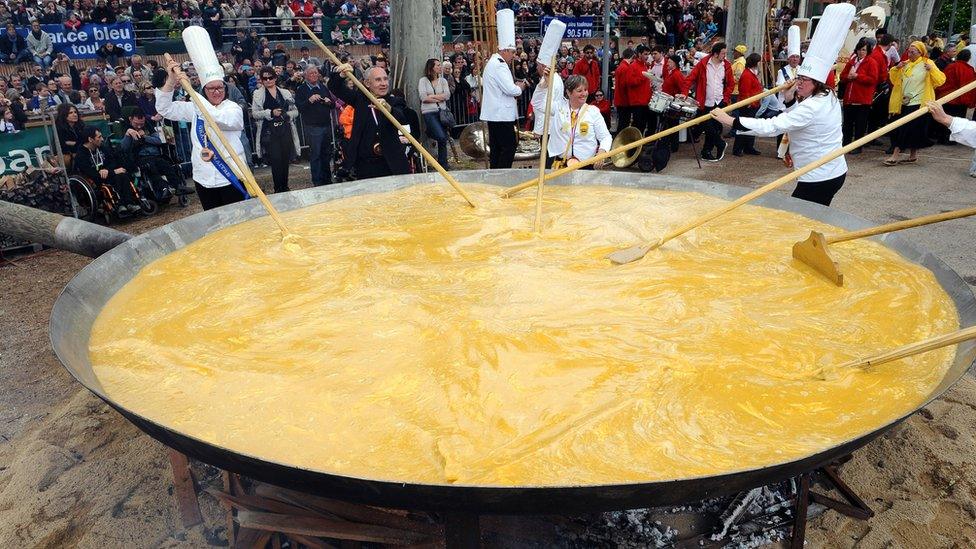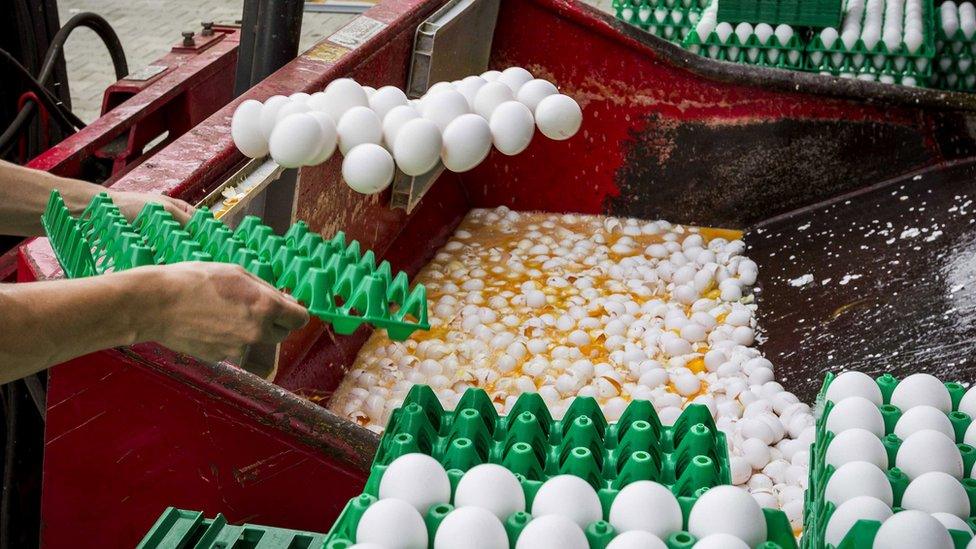Belgian Malmedy giant omelette-fest defies egg scare
- Published

The Malmedy tradition is emulated in Bessières, France (pictured in April 2014)
A traditional giant omelette made with 10,000 eggs will sizzle in Belgium on Tuesday, despite an ongoing egg contamination scandal, organisers say.
The fipronil insecticide scare will not stop the 22-year-old tradition in Malmedy, a town in mainly French-speaking south-eastern Belgium.
Food safety officials say the fipronil traces found in eggs are too tiny to harm people. The chemical, which kills lice, is banned in the food chain.
Traces have been found in 18 countries.
The insecticide got into the food chain in the Netherlands, which is one of Europe's biggest egg producers, but contaminated eggs have travelled as far as Hong Kong.
Millions of eggs have been destroyed, suspect batches removed from supermarket shelves, and the cost to producers and retailers is estimated at €150m (£136m; $177m) so far.
Two Dutch suspects are in police custody. Meanwhile, some 180 poultry farms have been temporarily shut.
What do we know about the Europe egg scare?
Egg scandal affects many EU countries
The Malmedy eggs have undergone extra-tight scrutiny, broadcaster RTL says.
But the organisers are nervous, fearing that many citizens might spurn the egg, bacon and herb omelette, cooked in a 4m-wide (13ft) frying pan.
"We'll see how it goes, because you still hear a lot of rumours and people are saying they're a bit frightened," commented Robert Ansenne, "grandmaster" of the organisation called "The World Fraternity of Knights of the Giant Omelette".
Portions of the omelette are handed out free to the public in a square in Malmedy at the annual celebration.
The giant omelette tradition has spread to Bessières and Fréjus in France, Dumbea in New Caledonia, Abbeville in the US state of Louisiana, Granby in Canada and Pigüé in Argentina.
- Published11 August 2017

- Published6 August 2017
